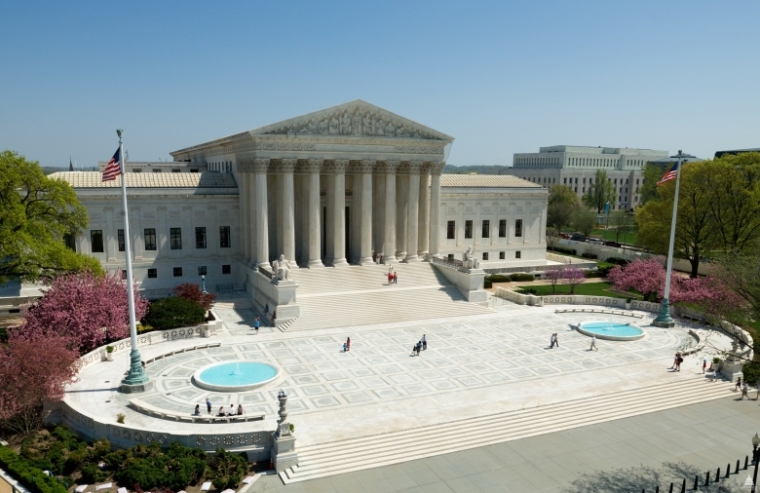Supreme Court delays inevitable ruling on homosexual marriage

The United States Supreme Court announced today its intentions not to hear during its upcoming docket any of the pending cases queued for possible consideration about the constitutionality of homosexual marriage.
Their decision comes after a dramatic ruling a year ago in which a divided Court, 5-4, ruled the Defense of Marriage Act violated the Fifth Amendment. This article of the Bill of Rights typically is interpreted as outlining basic constitutional limits on police procedure. But its principles were applied in that instance to find the federal estate tax discriminated against homosexual couples and that lack of federal recognition of homosexual unions was stigmatizing to homosexuals.
In that landmark ruling, Justice Anthony M. Kennedy wrote for the majority that there is "no legitimate purpose" for defining marriage as between a man and a woman and that the Defense of Marriage Act treated persons in homosexual unions "as living in marriages less respected than others."
According to the Los Angeles Times, since the Supreme Court's ruling at least two federal appeals courts have ruled in favor of same-sex marriage in three states, and 15 lower federal courts have decided likewise.
The dramatic support for homosexual marriage in federal courts appears to trend with the changes President Obama has been able to effect in the makeup of the courts.
The New York Times reported that for the first time in a decade "judges appointed by Democratic presidents considerably outnumber judges appointed by Republican presidents" and that Democratic appointees who hear full cases "now hold a majority of seats on nine of the 13 United States Courts of Appeals."
There has been a recent ruling that goes against this trend.
In September the U.S. Court of Appeals for the Fifth Circuit ruled that states have a "legitimate interest under a rational basis standard of review for addressing the meaning of marriage through the democratic process."
Not surprisingly, the Fifth Circuit located in New Orleans (which covers Louisiana, Mississippi and Texas) is considered the most conservative of the regional courts of appeal.
Thirty-one states currently ban homosexual marriage or civil unions or both, but such state bans in Utah, Oklahoma, Virginia, Indiana and Wisconsin have been overturned in lower courts. The Supreme Courts' ruling on the DOMA means that the federal government cannot deny benefits to couples in the 19 states and the District of Columbia that permit homosexual marriage.
Likewise, it means thst Utah, Oklahoma, Virginia, Indiana and Wisconsin can begin recognizing marriages of two people of the same gender. Moreover, since the appeals courts of those states cover other states, the decision could mean that an additional six states may be required to recognize same-sex marriages, effectively overturning as well their voter initiatives and legislative actions to define marriage as only between one man and one woman.
According to USA Today, the earliest the Supreme Court would hear oral arguments in one of the waiting cases would be "early in 2015 and a ruling rendered before the court adjourns in June." But, the article noted that it "is unlikely that the justices will decide before their next conference on Oct. 10."